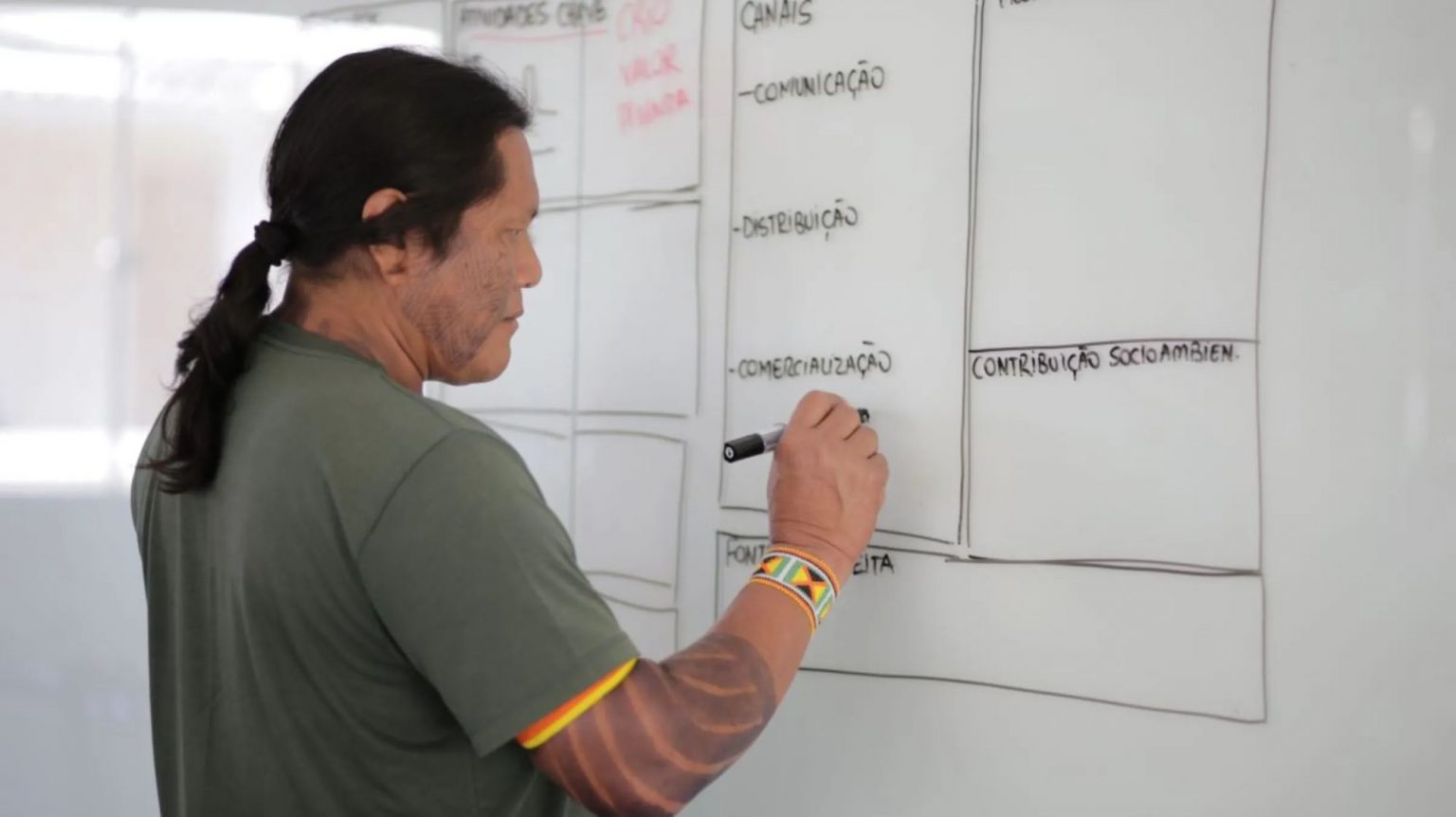by LAURIE GOERING & FABIO TEIXEIRA

Alongside the Brazilian Amazon’s vast soy and cattle ranching economy – a major driver of deforestation – sits an older, more sustainable system of families and cooperatives producing forest products including the palm fruit açaí, rubber and pharmaceutical ingredients.
That “bioeconomy”, with its legions of small producers, including Indigenous communities, receives just a fraction of the flood of investment pouring into expanding soy and cattle.
As Brazil tries to protect its fast-vanishing rainforest, reduce inequality and build a more sustainable economy, finding ways to shift investment toward expanding the bioeconomy may be the best chance to protect the Amazon and its people, experts say.
“We have a model that looks at our natural resources from an exploitation point of view,” said Carina Pimenta, a founder of Conexsus, a Brazilian non-profit that helps traditional producers get the business expertise and investment they need to grow.
By instead proactively developing and strengthening the bioeconomy, Brazil can not only protect its forests and meet its climate change and biodiversity commitments but boost its economy and channel cash to communities with a stake in keeping nature intact, she said.
“The economic benefits are larger in this sustainable system” – not least because continuing Amazon destruction will disrupt the rainfall Brazil’s cattle and soy economy depends on, said Pimenta, who was recently named National Secretary for the Bioeconomy in President Luiz Inácio Lula da Silva’s environment ministry.
“The problem is we have not promoted it as a development path. People are used to another means of production – and this is a cultural change that needs to be induced by public policy.”
Chocolate to açaí
Conexsus, which won a US$ 2.25 million prize for social innovation this month from the U.S.-based anti-poverty Skoll Foundation, works on the ground with small producers of products such as açaí and chocolate, improving practices, adding skills, and helping line up finance.
The aim is to turn small cooperatives and subsistence-level production into thriving, sustainable businesses.
In the Amazonian state of Pará, for instance, Conexsus has helped Coopatrans – a cooperative of cocoa farmers that produces their own brand of chocolate, Cacauway – with technical assistance on how to produce better quality cocoa beans.
Brazzil for more
